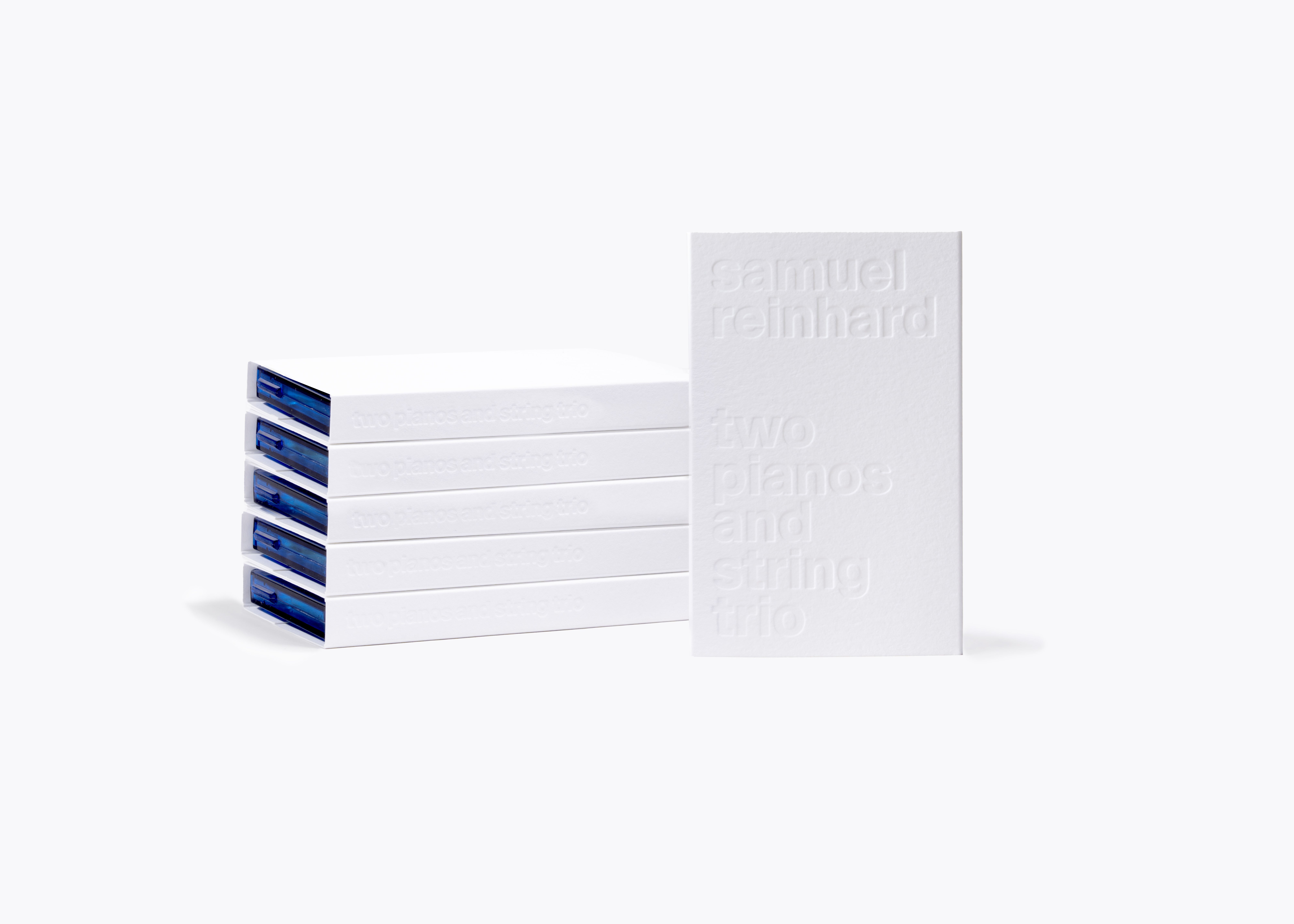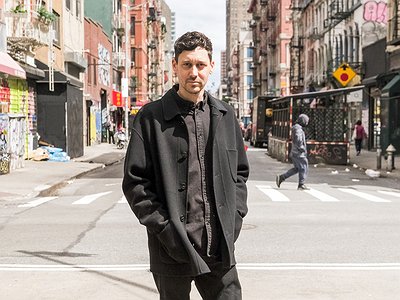Name: Samuel Reinhard
Nationality: Swiss
Occupation: Composer
Current release: Samuel Reinhard's Two Pianos and String Trio is out via Präsens Editionen.
Recommendations:
Max Neuhaus - “Time Piece Beacon" (2005)
Agnes Martin - Writings/Schriften (Hatje Cantz Publishers, 1998)
If you enjoyed this Samuel Reinhard interview and would like to stay up to date with his music, visit his official website. He is also on Instagram. For a look into Samuel's creative process, read our second interview with him.
Tell me about some of the albums or artists that you love specifically for their sound, please.
One of my earliest “musical” memories is discovering how sound holds the power to grant me access to spaces other than the one I’m physically inhabiting. As a child I would often sit under my mom’s upright piano and press my ear against the exposed wire-wrapped bass strings while reaching for random keys in that register. I was completely awestruck by how it seemed as though there was this gigantic space literally inside of the strings.
Similarly, I would press my ear closely against our home stereo’s speakers and was completely baffled by how big the space inside the speakers sounded, while the speaker itself was just this small wooden box. Mind you this was the early 80s, when engineers weren’t stingy with reverb and other spatial processing.
So with that I would say, I love any recording that captures very distinct spaces, whether they’re “real” or artificial. In the latter category, Fleetwood Mac’s Tango In The Night record is one of my all time favorite records just in terms of how its spatiality is almost physically palpable to me.
A very different record and very different kind of space is Éliane Radigue’s Trilogie de la Mort, particularly the “Kyema” movement.
Here I get the sensation as though I’m literally inside of the sound. It feels like an almost womb-like experience that I find very captivating.
Do you experience strong emotional responses towards certain sounds? If so, what kind of sounds are these and do you have an explanation about the reasons for these responses?
I tend to react very strongly and positively to small sounds in a musical performance that betray a human presence, like the trace of a finger pressing a key or the shuffle of a body shifting position.
To me these small, distinctly human sounds create a sense of intimacy that I find very moving. They must probably satisfy some inherent desire for human connection or something along these lines.
Are there everyday places, spaces, or devices which intrigue you by the way they sound? Which are these?
I love standing under the Manhattan bridge on East Broadway or by the promenade on South Street when the train passes overhead. It’s the most all-embracing sound I can think of, a thrilling full-body experience akin to taking a cold plunge or something.
On the opposite end of that spectrum, I love the sound of rain gently dripping on the roof of an otherwise quiet, parked car.
Two Pianos and String Trio by Samuel Reinhard
What are among your favorite spaces to record and play your music?
I like very small and super-dry studio spaces, where ultra-close up microphone positions will give you the sense as though you were almost sitting inside the instrument or inside the music.
Do music and sound feel “material” to you? Does working with sound feel like you're sculpting or shaping something?
They do, very much so. In fact I’ve spent the majority of my graduate years completely preoccupied with trying to figure out how to formulate a Master’s thesis on the materiality of sound and on sound as a sculptural medium. In the end, I couldn’t quite figure it out, and ended up writing about Musique concrète and acousmatic music instead.
These days I’m less occupied with the idea of shaping or sculpting sonic material, which to me inherently has a forceful, if not straight up aggressive or “imperial” connotation. Nowadays I’m much more interested in creating situations in which I can let sound develop and progress at its own pace.
How important is sound for our overall well-being and in how far do you feel the "acoustic health" of a society or environment is reflective of its overall health?
I think sound and the quality of our acoustic environment are absolutely crucial to our well-being and health. That said, I think what qualifies as a “healthy” acoustic environment differs vastly from person-to-person, and probably across cultures and traditions.
I even find that for myself the way I perceive certain acoustic environments constantly changes. At times the noise in my neighborhood (New York’s Lower East Side) is maddening, at other times it’s the most soothing soundscape I can think of. Similarly, an “untainted” acoustic environment like a forest or an eerily quiet small town at night can at times feel relaxing, at other times menacing.
So I don’t necessarily always agree with acoustic ecologists who have a tendency to categorize sounds and noise into good and bad.
We can surround us with sound every second of the day. The great pianist Glenn Gould even considered this the ultimate delight. How do you see that yourself and what importance does silence hold?
I think silence and sound are two sides of the same coin. One cannot exist without the other, and therefore I think a world without “silence” (which—if we want to get nitpicky—is of course just a theoretical construct) is equally frightening as a world without sound.





